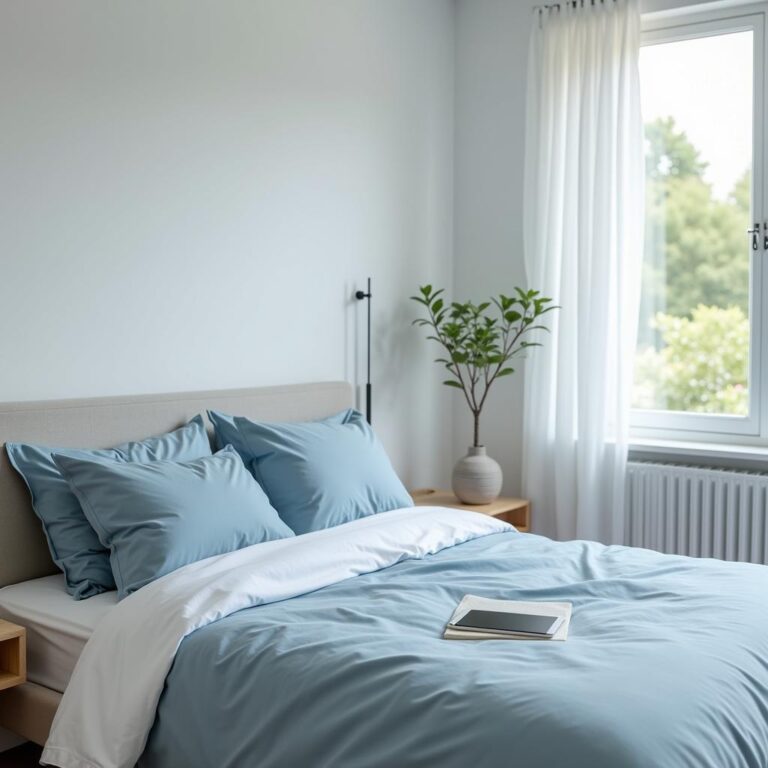Understanding the Importance of Evening Habits
In today’s fast-paced world, maintaining high productivity levels while ensuring quality sleep can seem like a daunting task. However, integrating effective evening habits into your daily routine can significantly enhance both sleep quality and productivity. With the right practices, you can create a peaceful environment that not only prepares your mind and body for restful sleep but also sets the groundwork for a more productive day ahead.
The Science Behind Sleep Quality and Productivity
Quality sleep is essential for cognitive function, emotional well-being, and overall health. Poor sleep can lead to decreased concentration, impaired memory, and diminished productivity. Conversely, establishing a healthy evening routine promotes restorative sleep, which is crucial for mental clarity and energy levels during the day.
Numerous studies support the connection between evening habits and improved sleep quality. Engaging in calming activities before bedtime prepares the mind for rest, encourages relaxation, and helps regulate circadian rhythms, thereby facilitating a more productive next day.
Evening Habits That Enhance Sleep Quality
1. Limit Screen Time
One of the most effective evening habits is to reduce screen time before bed. The blue light emitted from smartphones, tablets, and computers disrupts melatonin production, making it difficult to fall asleep. Aim to turn off all screens at least one hour before bedtime. Instead, opt for more calming activities such as reading a book or practicing relaxation techniques.
2. Create a Relaxing Bedtime Ritual
Creating a soothing bedtime ritual can signal to your body that it’s time to wind down. Consider incorporating activities like gentle stretching, deep breathing exercises, or meditation into your routine. These calming practices can help reduce stress and transition your mind into a restful state, ultimately improving sleep quality.
3. Set a Consistent Sleep Schedule
Consistency is key when it comes to improving sleep quality. Going to bed and waking up at the same times each day can help regulate your body’s internal clock, making it easier to fall asleep and wake up refreshed. Set a bedtime that allows for 7-9 hours of sleep and stick with it, even on weekends.
4. Keep Your Sleep Environment Comfortable
Your sleep environment plays a crucial role in the quality of your rest. Ensure your bedroom is conducive to sleep by keeping it cool, dark, and quiet. Invest in quality bedding, blackout curtains, and, if necessary, a white noise machine or earplugs. A comfortable sleep sanctuary can make a world of difference in how well you sleep.
5. Avoid Stimulants
Caffeine and nicotine are stimulants that can interfere with your ability to fall asleep. To improve sleep quality, avoid consuming these substances in the hours leading up to bedtime. Opt for herbal teas or other non-caffeinated beverages instead.
Evening Habits That Boost Productivity
1. Plan Your Next Day
Taking a few moments to plan your next day can significantly enhance your productivity. Consider making a to-do list that prioritizes your tasks and outlines your goals for the following day. Having a clear plan in place can reduce anxiety and ensure that you wake up with a sense of direction.
2. Reflect on Your Day
Reflection is an important habit that can improve your productivity over time. Spend a few minutes each evening to assess what went well during the day and identify areas for improvement. This practice can contribute to personal growth and help you develop a strategy for overcoming challenges.
3. Engage in Light Physical Activity
Incorporating light physical activity into your evening routine can help reduce stress and enhance overall well-being. Whether it’s a short walk, yoga session, or stretching exercises, moving your body can release endorphins and provide clarity, making it easier to unwind and prepare for a restful night.
4. Limit Food and Drink Intake Before Bed
Eating heavy meals or consuming large quantities of liquids right before bed can disrupt your sleep patterns. Aim to finish eating at least 2-3 hours before bedtime to give your body adequate time to digest. Also, limit alcohol consumption as it can impact sleep quality and productivity.
5. Cultivate a Gratitude Practice
Incorporating a gratitude practice into your evening routine can foster a positive mindset and reduce anxiety. Take a few moments to write down or mentally note the things you’re grateful for each day. This habit can help improve your emotional well-being and set a positive tone for the following day.
Conclusion: Crafting Your Ideal Evening Routine
Creating an effective evening routine that includes habits promoting both sleep quality and productivity requires intentionality and commitment. By incorporating activities that support relaxation and planning, you can significantly improve your daily performance and nighttime restfulness.
Start by making small adjustments to your evening habits, and be patient as you discover what works best for you. Over time, you’ll find that these practices not only enhance your sleep quality but also lead to increased productivity, allowing you to tackle the challenges of each new day with vigor and clarity.







